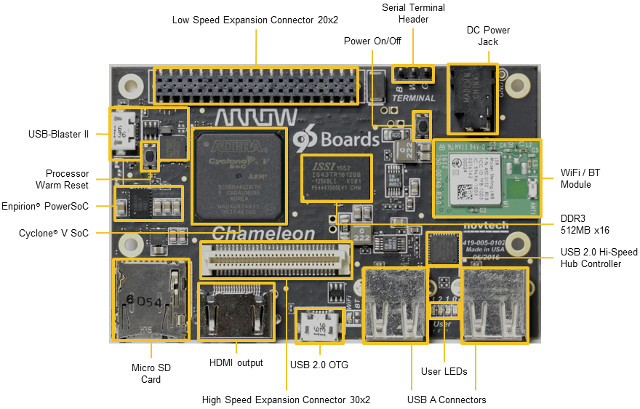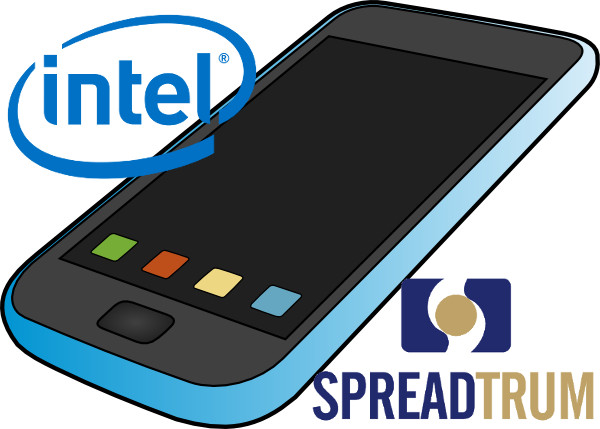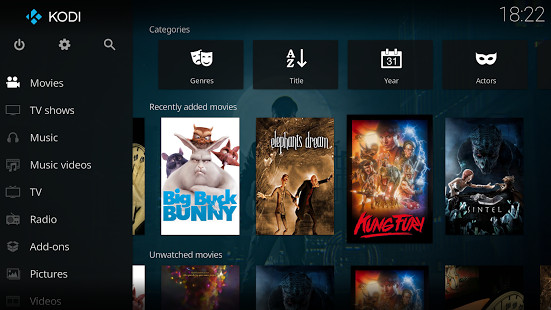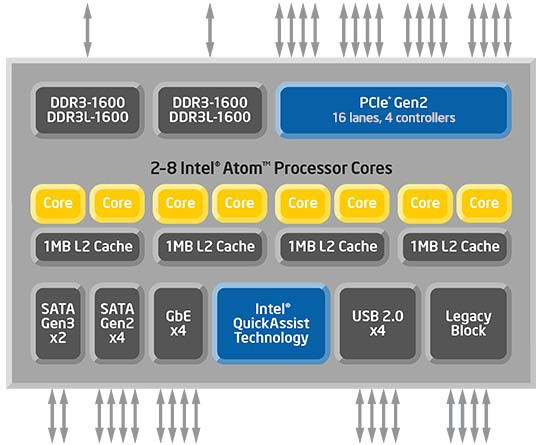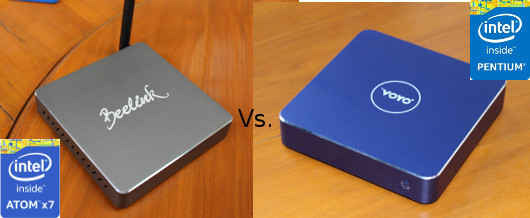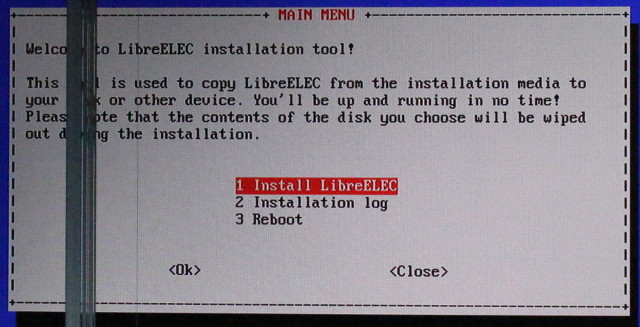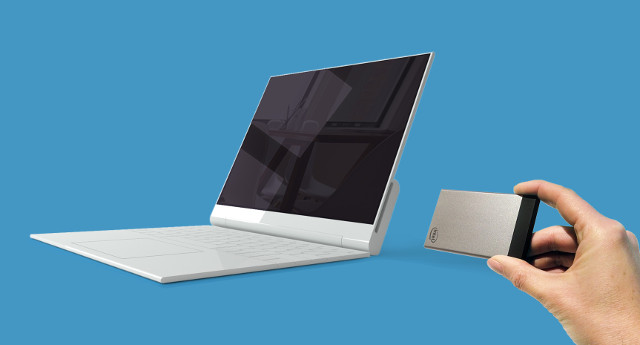Embedded World 2017 will start in about one week, and take place in March 14 – 16 in Nuremberg, Germany, so we can expect interesting embedded news coming soon. Arrow has written a blog post with plans to announce three 96Boards at the event: Meerkat based on NXP i.MX 7Dual, Chameleon96 based on Intel/Altera Cyclone V FPGA + ARM SoC, and Systart Oxalis 96Boards EE board powered by NXP LS1020A single core ARM Cortex A53 SoC. I’ll start with Chameleon (Chameleon96) today, as it’s the first with FPGA fabric, and I could find some technical details and photos about the board. Chameleon96 board specifications: SoC – Intel PSG / Altera Cyclone V SE 5CSEBA6U19I7N with a dual core ARM Cortex A9 processor @ up to 800 MHz and FPGA fabric with 110K Logic Elements Chips, Ports and Features connected to FPGA: Integrated USB-Blaster II JTAG cable Configuration sources: SD Card, […]
Spreadtrum SC9861G-IA is an Octa-core Intel Airmont LTE SoC for Smartphones
Do you member Rockchip & Intel partnership about “SoFia” SoC for smartphones? It did not pan out so well, and but Intel has apparently not given up on the idea of partnering with Chinese companies to design and launch Intel based smartphone application processors, as Speadtrum has just announced SC9861G-IA octa-core Intel Airmont processor @ up to 2.0 GHz with an LTE Cat. 7 modem, and manufactured using Intel’s 14nm process technology. The Airmont architecture is also found in Intel’s own Cherry Trail and Braswell SoCs designed for respectively tablets and mini PCs, so they must have found some further power efficiencies in order to use it in a smartphone, and used some of technology developed for Intel canceled projects. SC9861G-IA withh support 5-mode full-band LTE (TDD-LTE / FDD-LTE / TD-SCDMA / WCDMA / EGG) Cat 7. as well as Carrier Aggregation and TDD/FDD hybrid networking, allowing for peak data […]
LibreELEC v8.0.0 Released with Kodi 17.0 (Krypton)
LibreELEC is a JeOS (Just enough Operating System) based on Linux that creates a media center appliance platform for Kodi (formelly XBMC), and a fork of OpenELEC. The developers have now released LibreELEC v8.0.0 with the latest Kodi 17.0 “Krypton”. Beside the update to Kodi 17, some of the changes since the last stable version (v7.95.3) include: Fix for TVheadend issues in the WeTek Play 2 DVB driver Fix for interactive governor causing slowdown issues on the WeTek Core Fix for missing Bluetooth “connect and trust” option when pairing Fix for missing ir-keytable streamzap support after recent changes Updates to refine lirc repeat timing changes Update WeTek Play 2 remote keymap to expose more buttons Updates to linux-amlogic 3.10 (arm) and 3.14 (aarch64) kernels Add hexdump busybox applet needed for Odroid_C2 overclocking The full list of changes can be found on github. While it’s possible to update from an existing […]
Older Intel Atom C2000 Series Server Chips May Stop Working After a While, and There’s no Fix
It takes time and efforts to debugging hardware and software to get a product right, but some bugs may be hard to reproduce, or only happen over time, and it appears some Intel Celeron C2000 series processor for microservers may stop working after about 18 months, with the likelihood of problems increasing over time, due to clock signals that stop functioning. This is documented in Intel Atom Processor C2000 Product Family Specification Update, with Errata AVR 54 explaining the issue: AVR54. System May Experience Inability to Boot or May Cease Operation Problem: The SoC LPC_CLKOUT0 and/or LPC_CLKOUT1 signals (Low Pin Count bus clock outputs) may stop functioning. Implication: If the LPC clock(s) stop functioning the system will no longer be able to boot. Workaround: A platform level change has been identified and may be implemented as a workaround for this erratum. Status: For the steppings affected, see Table 1, “Errata […]
Intel Atom x7-Z8700 (Cherry Trail) vs Intel Pentium N4200 (Apollo Lake) Benchmarks Comparison
Mini PCs based on Intel Apollo Lake processors have started selling, and they supposed to be upgrades to Braswell and Cherry Trail processor. I’ve recently had the chance to review Voyo VMac Mini mini PC powered by Intel Pentium N4200 quad core processor, that’s the fastest model of the Apollo Lake N series, and of course I ran some benchmarks, so I thought it would be interesting compare the results I got with an Atom x7-Z8700 “Cherry Trail” mini PC, namely Beelink BT7 which I reviewed last year. Both machines are actively cooled with a small fan, and storage performance is similar, albeit with a slight edge for the Apollo Lake SSD. A ratio greater than one (green) means the Apollo Lake processor is faster, and if it is lower than one (red) the Cherry Trail processor win. Benchmark Beelink BT7 Intel Atom x7-Z8700 @ 1.6 / 2.4 GHz (2W […]
Embedded Linux Conference & OpenIoT Summit 2017 Schedule
The Embedded Linux Conference 2017 and the OpenIoT Summit 2017 will take place earlier than last year, on February 20 – 23, 2017 in Portland, Oregon, USA. This will be the 12th year for ELC, where kernel & system developers, userspace developers, and product vendors meet and collaborate. The schedule has been posted on the Linux Foundation website, and whether you’re going to attend or not, it’s always informative to check out the topics. So as usual, I’ll make a virtual schedule for all 5 days. Monday, February 20 For the first day, the selection is easy, as choices are limited, and the official first day it actually on Tuesday. You can either attend a full-day paid training sessions entitled “Building A Low Powered Smart Appliance Workshop“, and the only session that day: 14:30 – 15:20 – Over-the-air (OTA) Software Updates without Downtime or Service Disruption, by Alfred Bratterud, IncludeOS […]
LibreELEC (Kodi Linux) on Voyo V1 VMac Mini Apollo Lake Mini PC
I’ve just posted Voyo V1 VMac Mini review with Windows 10 this morning, and at the end I mentioned I quickly tried to run Ubuntu 16.04 without success. Reader Piotr who also happens to be a LibreELEC together with about 65 other team members, noticed it, provided me a link to a development version of LibreELEC 8.0 (mirror link) working with Apollo Lake processors, and explained Ubuntu was not working because Linux needs updated Mesa and Intel drivers. The image is based on Linux 4.10-rc5 with the necessary drivers and Kodi 17. The changes were mostly made by FernetMenta (Rainer Hochecker), and will be merged in Linux 4.10 and Mesa 17.0. He also implemented 10-bit HEVC support that will officially be available in Kodi 18 only and found in daily builds. So let’s try this out. After downloading LibreELEC-Intel.x86_64-8.0-devel-20170130110609-r25167-gd210441.img.gz, I tried to flash it (N.B.: no need to extract it) […]
NexDock is Working on a Hybrid Laptop Dock for Intel Compute Cards
NexDock first launched a 14″ laptop dock for smartphones, tablets, and development boards via a Indiegogo campaign in 2016, where they successfully raised over $350,000, and delivered rewards to backers last September and October. With the recent introduction of the Intel Compute Card, the company has now decided to work on a new NexDock that will take Intel’s cards. We don’t have much details right now, but the company said that beside the Intel Compute Card, it will come support interchangeable USB type-C modules, and will still support Windows 10 smartphones with continuum feature, Raspberry Pi and other devices that can be connected through a USB-C port. The second drawing also suggests the keyboard will be detachable, and you’ll be able to use NexDock as a Windows tablet. It could be nice to have an Intel laptop with Linux or Windows, and an ARM tablet with Android, but this won’t […]


